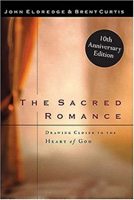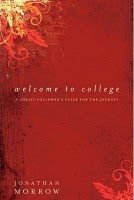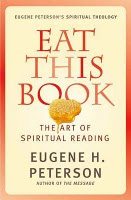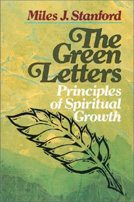“Emerging adults” is a term coined by sociologists to capture the new reality of 18- to 30-year-old Americans who have not fully assumed the responsibilities of classic adulthood. In previous articles, we looked at disturbing information on the beliefs of emerging adults in America from surveys by Christian Smith of Notre Dame, by Probe Ministries, and by others. In them, we found clear evidence of accelerating erosion in accepting and adhering to basic biblical truths for living, even among those who were born again. Our emerging cultural milieu of pop post-modernism is clearly taking many young adult Christians captive to the “philosophies of men” (Col. 2:8). Here we will take a closer look at the erosion of belief in several important areas.
 Christian Smith and his fellow researchers at Notre Dame published an initial book, Souls in Transition, covering the results of their 2008 survey of the religious beliefs and actions of emerging adults from age 18 through 23. We discussed their findings in two earlier articles: Emerging Adults and the Future of Faith in America, and Emerging Adults Part 2: Distinctly Different Faiths. Their deep distress over some of the results of their surveys and interviews led them to publish a follow-up book in 2011 entitled Lost in Transition: The Dark Side of Emerging Adulthood. In this book, they focus on five specific areas of concern identified by their earlier research:
Christian Smith and his fellow researchers at Notre Dame published an initial book, Souls in Transition, covering the results of their 2008 survey of the religious beliefs and actions of emerging adults from age 18 through 23. We discussed their findings in two earlier articles: Emerging Adults and the Future of Faith in America, and Emerging Adults Part 2: Distinctly Different Faiths. Their deep distress over some of the results of their surveys and interviews led them to publish a follow-up book in 2011 entitled Lost in Transition: The Dark Side of Emerging Adulthood. In this book, they focus on five specific areas of concern identified by their earlier research:
1. Moral aimlessness
2. Materialistic consumerism
3. Intoxicated living
4. Deep troubles from sexually liberated behavior
5. Lack of interest in civic and political life
The troubling characteristics of emerging adult life in America in the early years of the twenty-first century remind us of what Paul warned of in 2 Timothy when he wrote: “in the last days difficult times will come. For men will be lovers of self, lovers of money, . . . arrogant, . . . ungrateful, . . . without self-control, . . . reckless, conceited, lovers of pleasure rather than lovers of God, holding to a form of godliness, although they have denied its power” (2 Tim 3:1-5).
One major factor in the growth of these problems is the widespread acceptance of pop post-modernism throughout our culture. As Smith points out, the post-modern theory became “democratized and vulgarized in U.S. culture” becoming a “simple-minded ideology presupposing the cultural construction of everything, individualistic subjectivism, soft ontological antirealism and absolute moral relativism.”{1}
This popularized post-modern view says there is no objective truth, only the practical truth I choose to live by with my friends. This view leads to a basic disconnect with the teaching of Jesus who claimed His purpose was to “testify to the truth” (Jn. 18:37) because He is the truth.
Dale Tackett, author of The Truth Project, put the problem this way, “When what is right is what’s good for me, you will find all of the moral chaos that we see today.”{2}
In what follows, we will focus on three of the five areas of concern: moral aimlessness, materialistic consumerism, and the lack of interest in civic and political life.
Moral Viewpoint — A Floating Standard
In his study of American emerging adults, Smith found that their morality is adrift with no standard to hold it in place.
What is morality in the first place? Morality is defined as “a system of ideas of right and wrong conduct.”{3} For Christians, this system is set out for us in the Bible, particularly in the Ten Commandments, the teachings of Jesus, and the New Testament epistles. The Bible makes it clear that God is the source of true morality. It is our responsibility to learn and apply His moral precepts. As Jesus said in the Sermon on the Mount, “Let your light shine before men in such a way that they may see your good works and glorify your Father who is in heaven” (Matt. 5:16). Or as Paul instructed in 1Thessalonians, “examine everything carefully; hold fast to that which is good; abstain from every form of evil” (5:21-22). Paul is saying hold fast to the morality taught by Christ.
In a Christian nation, how can there be any confusion about morality? Well, sixty percent of emerging adults say that “morality is a personal choice, entirely a matter of individual decision. Moral rights and wrongs are essentially matters of individual opinion, in their view.”{4} And where do these opinions come from? One emerging adult put it this way, “Like just kinda things that I thought up, that I decided was right for me. So I don’t know. I honestly don’t. It just kinda came outta thin air.”{5} So, we can either look for the Bible as the source of our morality or we can just create it out of thin air.
When faced with a moral choice, almost half of them said they would do what made them feel happy or would help them get ahead. Less than one out of five said they would “do what God or the scripture” says is right. Many of them said they would not really know if their choice was right or wrong until after it was done and they could evaluate how they felt about it.
Not only do they not look to the Bible or society for their moral compass; they believe that it is morally wrong to assume there is a common morality that applies to all. Because we must be tolerant and accept other’s views as right for them, we must not apply our moral precepts to their actions. As Smith put it, “Giving voice to one’s own moral views is itself nearly immoral.” What they fail to realize is that complete moral relativism and tolerance actually dishonor the beliefs of others. With this view, they cannot accept new views which are superior to their own or act to correct views which are inferior. What someone else thinks is about morality is immaterial to them.
This type of thinking will ultimately lead to disaster for the people embracing it. As Chuck Colson said, “So often, the great disasters (of the past) were caused by people disregarding God’s standard of right and wrong and doing what was right in their own eyes . . . We’ve stopped moral teaching in our country and we are seeing the inevitable consequence of failing to teach moral values to a culture. We are seeing chaos.”{6}
The whole topic of morality is not something most emerging adults give much thought to. One third of them could not think of any moral dilemmas that they had faced in their lives, while another third of them offered examples that were not actually moral dilemmas. For example, one of them stated, “I guess renting the apartment thing, whether or not I would be able to afford it.” That is a dilemma but it is not a moral dilemma. So through their education from their parents and schools, the vast majority of emerging adults really have not gained a good working knowledge of the concept of morality much less its importance to society. Yet in 1 Peter, Peter makes it clear that our moral actions are one of the most important ways that Christians can share the good news of Jesus Christ. As he said, “For such is the will of God that by doing right you may silence the ignorance of foolish men” (2:15).
Consumerism — The True Objective of Life
What impact has consumer culture had on the lives of emerging adults?
As Christians, our lives are to be about far more than how much we are able to consume. Jesus never gave his disciples instructions on how to increase their economic wealth. Instead, He sent his disciples out to minister with little more than the clothes on their backs. Similarly, Paul learned to be content with whatever the Lord provided. He states, “I know how to get along with humble means, and I also know how to live in prosperity; in any and every circumstance I have learned the secret of being filled and going hungry, both of having abundance and suffering need. I can do all things through Him who strengthens me” (Phil. 4:12-14). To be clear, the Bible does teach us much about how to operate successfully in the business world. But, it is also clear that our purpose in life is to be focused on things with eternal value and not on how much we can accumulate and consume on this earth.
Yet, as a whole, the young, emerging adults in this nation have missed the call of Christ to focus our lives on the eternal rather than the temporal. Instead, not only have they bought into consumerism as the primary goal of life, but they appear to be unable to consider any shortcomings in a life focused on what they can consume. Smith reports, “Contemporary emerging adults are either true believers or complacent conformists when it comes to mass consumerism.”{7}
As one emerging adult put it, “It feels good to be able to get things that you want and you work for the money. If you want something, you go get it. It makes your life more comfortable and I guess it just make you feel good about yourself as well.”{8} That statement by itself might not seem so bad until you realize that it is their sole method to feel good about themselves. The more you can consume the better. They miss the balanced view of material things taught in the Bible. For example, in Proverbs we are told,
Give me neither poverty nor riches;
Feed me with the food that is my portion,
That I not be full and deny You and say, “Who is the LORD?”
Or that I not be in want and steal,
And profane the name of my God (Prov. 30:8,9).
In addition, the idea of limiting one’s consumption in order to have the resources to help others is foreign to most emerging adults. Many of them would like to see the needs of the starving people met, “just not by me, not now.” If they ever reach a state in life where all their consumer desires are met, then they may consider using some resources for charitable causes. One obvious problem with this approach is that our consumer conscious society always has something new and better that you must purchase and experience.
This attitude is in contrast to that of the Macedonians Paul commends in his second letter to the Corinthian church:
. . . that in a great ordeal of affliction their abundance of joy and their deep poverty overflowed in the wealth of their liberality. For I testify that according to their ability, and beyond their ability, they gave of their own accord, begging us with much urging for the favor of participation in the support of the saints, and this, not as we had expected, but they first gave themselves to the Lord and to us by the will of God (2 Cor. 8:1-6).
Rather than “seeking the kingdom of God and his righteousness” and letting the material things be of secondary importance, most young America adults are seeking consumer nirvana and its false sense of well being. With no external moral compass for guidance, they are unwilling to express concerns about the grossest forms of excessive consumerism. As most of them said when asked, “If someone wants it, who am I to say that they are wrong?” When emerging adults refer to a good life, they talk about what they want to possess rather than the good that they can contribute to the world. I find it sad to think about being remembered for how much I consumed rather that how much I contributed. But this thought does not seem to bother these emerging adults.
Civic and Political Involvement — Not For Me
Let continue by examining another disturbing characteristic of young, emerging adults identified by Christian Smith through his extensive surveys and interviews over the last five years: their perception of civic and political involvement. Smith summarizes their attitude by saying, “The vast majority of the emerging adults we interviewed remain . . . politically disengaged, uninformed, and distrustful. Most in fact feel disempowered, apathetic, and sometimes even despairing when it comes to the larger social, civic, and political world beyond their own lives.”{9} When we consider that the polls and interviews driving this assessment occurred in the summer of 2008 during the perceived youth movement which brought President Obama into office, this result on political involvement is particularly surprising.
Some might say that being actively involved in politics is not the right course of action for Christians. And, thus, they may applaud this result. We certainly agree that our primary purpose as Christians will not and cannot be fulfilled through political action. However, what we are talking about here is not a lack of political activism, but rather a disengagement from active participation in the political process. As Paul instructed Timothy, “I urge that entreaties, prayers, petitions and thanksgivings be made on behalf of all men, for kings and all who are in authority in order that we may lead a tranquil and quiet life in all godliness and dignity” (1 Tim. 2:1-2). We are to be concerned about the impact of government on our lives. If the people Paul were writing to had the right to vote, I am confident he would have said to pray for and exercise your right to vote.
Through his research, Smith identified six different attitudes toward civic involvement among emerging adults. These attitudes are:
1. The apathetic are completely uninterested in politics and make up twenty-seven percent of emerging adults. It is important to note that these individuals were not apathetic in general, just about this area of life.
2. The uninformed said their lack of interest was driven by their lack of knowledge about the issues and the players. The uninformed made up thirteen percent of emerging adults.
3. The distrustful know a reasonable amount about political issues but do not participate because they distrust the political system and politicians. They believe exercising their right to vote will not make any difference.
4. The disempowered point to their inability to change the world (rather than distrust of the process) as their reason to be uninvolved. Around ten percent of emerging adults fall into this category.
5. The marginally political represent those who expressed some interest in politics but whose interest did not appear to lead to actual involvement in the process. These marginally political emerging adults make up twenty-seven percent of those interviewed.
6. That leaves four percent of emerging adults (all males) who appear to be genuinely political; that is, interested and involved in the process.
In summary, their interviews found two-thirds of the emerging adult population completely uninvolved and almost one-third with a very limited involvement. This meant only four percent considered the process an important responsibility in life.
This seemingly fatalistic view of politics was found to carry over in other areas of civic involvement such as volunteering and charitable giving. Smith summarized their results saying, “Contrary to some of the stories told in the popular media, most emerging adults in America have extremely modest hopes, if any, that they can change society or the world for the better, whether by volunteering or anything else.”{10} With that perception, providing help to others is not a requirement for righteousness, but simply an optional personal choice that most are not prepared to make.
Thinking back to our earlier discussion on the lack of a moral viewpoint, Smith’s research found a significant association between those who believe all morality is relative and individualistic and an attitude of apathy, ignorance, and distrust of the political process. In addition, Smith found a significant relationship between “enthusiasm for mass consumerism and lack of interest in political participation.”{11} So these three attitudes (no moral standards, consumer consumption as our primary objective, and no real political or civic involvement) appear to be common elements of the emerging adult belief system.
Emerging Adults — Where Will They Take Us?
One root cause of the attitudes expressed by emerging adults in American is pop post-modern individualism. Each individual must decide what is true for him or her and must not accept a common truth. Therefore, most emerging adults cannot grasp the concept of an objective reality beyond their individual selves that would have any bearing on their lives. As we have seen, this concept undermines their moral compass, their attitudes about consumer consumption, and their involvement in society through politics, volunteering, and charitable giving.
These dominant patterns of emerging adult thought in America should make us consider: “What does it mean?” and, “How can we do something about it?” Some might say it is just the way young people are. We were that way when we were young. They will snap out of it. To that idea Smith would say, “It is a different world today. . . . To think otherwise is to self-impose a blurred vision that cannot recognize real life as it is experienced today and so cannot take emerging adults seriously.”{12}
Others may say that is not what I hear on the news. Our young adults are leading a new wave of service and public involvement. To which Smith would say, “The fact that anyone ever believed that idea simply tells us how flimsy the empirical evidence that so many journalistic media stories are based upon is and how unaccountable to empirical reality high-profile journalism can be. . . . we – without joy – can set the record straight here: almost all emerging adults today are either apathetic, uninformed, distrustful, disempowered, or , at most marginally interested when it comes to politics and public life. Both the fact itself and the reasons for it speak poorly of the condition of our larger culture and society.”{13} He continues: “One tendency is to claim that emerging adults are deeply committed to social justice, passionately engaged in political activism, actively volunteering in their local communities, devoting themselves to building a greener, more peaceful and just world. Almost nothing could be further from the truth.”{14}
Although the vast majority of emerging adults are disengaged from involvement in the public sphere, they are quite engaged in a different way. As Smith points out, “they pursue these private-sphere emotional and relational investments with fervent devotion. . . . progressing yet further toward the nearly total submersion of self into fluidly constructed, private networks of technologically managed intimates and associates.”{15} He is referring of course to their disconnected connections via Facebook, Twitter, and other electronic social media.
We believe that there are several positive actions that we can take as Christians to improve this situation.
First, we need to examine ourselves. Are we living our lives under the direction of the ultimate source of morality, Jesus Christ? Are we consumed by consumerism or are we living for eternity? Are we taking an active part in impacting our society so that we may live godly and peaceful lives for Christ?
Next, we need to recognize that emerging adults under the age of thirty are, for the most part, not taking on the full responsibilities of adulthood. They are still emerging and, consequently, still need coaching. However, as Smith points out, “One of the striking social features of emerging adulthood is how structurally disconnected most emerging adults are from older adults. . . Most emerging adults live this crucial decade of life surrounded mostly by their peers . . . who have no more experience, insight, wisdom, perspective, or balance than they do.”{16} As parents, pastors, co-workers, we should continue to actively engage them in a mentor role. It is important that:
1. They understand we look to the Bible as the source for our moral decisions.
2. We are living in this world as citizens of heaven and as such consumer consumption is not our purpose for living.
3. We have a responsibility to be engaged in our society to keep our freedom to lead godly lives serving the Lord.
The apostle Peter put it this way: “Beloved, I urge you as aliens and strangers to abstain from fleshly lusts which wage war against the soul. Keep your behavior excellent among the Gentiles so that in the thing in which they slander you as evil doers, they may on account of your good deeds, as they observe them, glorify God in the day of visitation” (1 Pet. 2:11,12).
Finally, we need to reach out to emerging adults who are already involved in evangelical churches. We need to let them know that it is okay to engage others with their worldview and their source of truth, Jesus Christ. When they don’t share their worldview with others as a gift from God, they are effectively consigning those others to hell. Probe is in the midst of preparing materials that you can use in your church to directly address these issues.
Christian Smith captured the essence of this problem when he wrote, “Might it be true that the farthest boundary of sight that youth today can envision as real and being worth pursuit is entirely imminent, purely material, and completely mundane?”{17} As Christians, our boundary extends beyond this universe to the halls of heaven and puts our lives in a new perspective. Let that eternal perspective been seen in every area of your life.
As historian Christopher Lasch put it, “There is only one cure for the malady that afflicts our culture, and that is to speak the truth about it.”{18}
Notes
1. Christian Smith, Lost in Transition: The Dark Side of Emerging Adulthood (Oxford University Press, 2011), 15.
2. Del Tackett and Chuck Colson, The Way Out: God’s Solution to Moral Chaos in America, 2011, www.truthinaction.org/index.php/landing-doing-the-right-thing-full-episode/
3. American Heritage Dictionary, s.v. “Morality.”
4. Smith, Lost, 21.
5. Ibid., 22.
6. Tackett and Colson, The Way Out.
7. Smith, Lost, 72.
8. Ibid., 73.
9. Ibid., 196.
10. Ibid., 211.
11. Ibid., 218.
12. Ibid., 227.
13. Ibid., 224-5.
14. Ibid., 228.
15. Ibid., 223.
16. Ibid., 234.
17. Ibid., 236.
18. Christopher Lasch, “Give Youth Cause to Believe in Tomorrow,” International Herald Tribune, December 29, 1989.
© 2012 Probe Ministries


 The Sacred Romance: Drawing Closer to the Heart of God
The Sacred Romance: Drawing Closer to the Heart of God  Welcome to College: A Christ-follower’s Guide for the Journey
Welcome to College: A Christ-follower’s Guide for the Journey Eat This Book: The Art of Spiritual Reading
Eat This Book: The Art of Spiritual Reading  Real Sex: The Naked Truth about Chastity
Real Sex: The Naked Truth about Chastity Messy Spirituality: God’s Annoying Love for Imperfect People
Messy Spirituality: God’s Annoying Love for Imperfect People 
 5 Paths to the Love of Your Life: Defining Your Dating Style
5 Paths to the Love of Your Life: Defining Your Dating Style  Not the Way It’s Supposed to Be: A Breviary of Sin
Not the Way It’s Supposed to Be: A Breviary of Sin